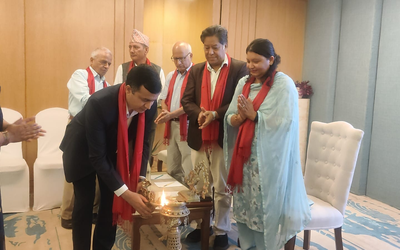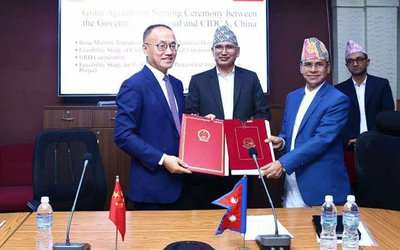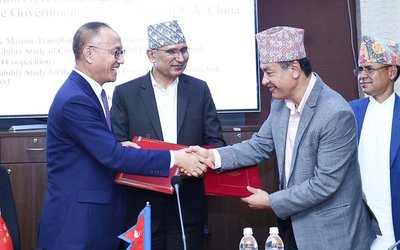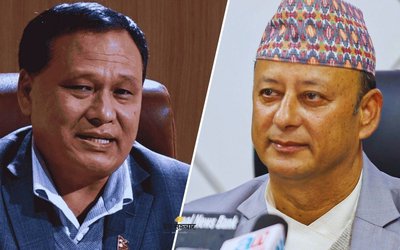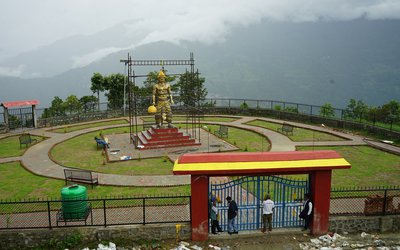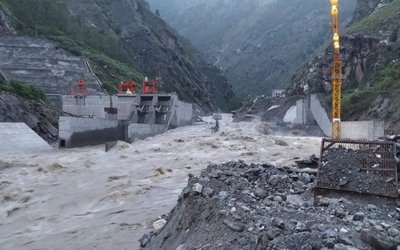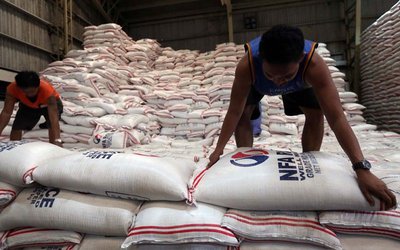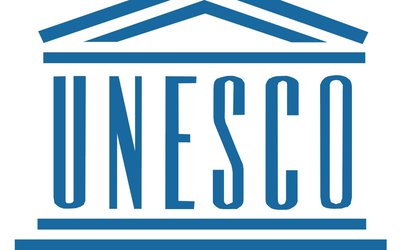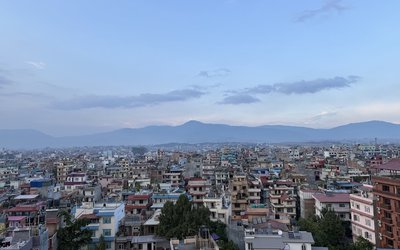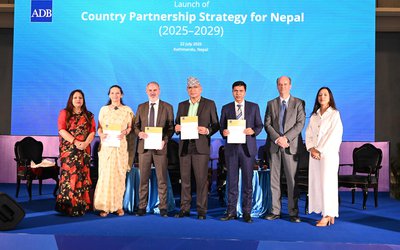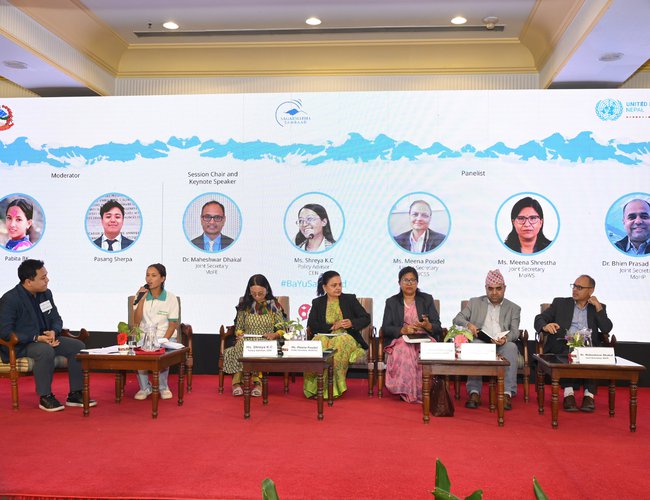
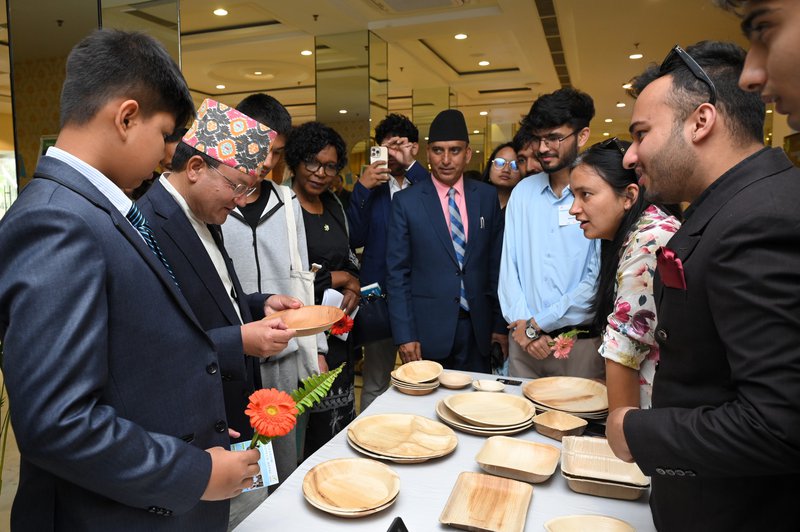
More than 100 children and young people from across Nepal convened in Kathmandu today for the Balbalika tatha Yuwa (BaYu) Sambaad, a children and youth-led national dialogue on climate action ahead of the international Sagarmatha Sambaad. With nearly half of Nepal’s population under the age of 24, the event underscored a powerful reality: children and youth are on the frontlines of the climate crisis, and they are calling for concerted and urgent climate action.
Jointly organized by the Government of Nepal and United Nations Nepal including UNICEF, FAO and UNDP with a consortium of youth networks, namely Nepalese Youth for Climate Action, Mountain Youth Hub, World Food Forum Nepal, Global Youth Biodiversity Network and Clean Energy Nepal, the event placed children and young people at the centre of the climate conversation. Representatives from the government, civil society, development partners, private sectors, media and climate experts joined the dialogue to listen to, learn from and stand with young people.
“Climate change is not a future concern, it is today’s reality”, said 20-year-old Nischal Bhatt. “We, young people, have the passion and power to bring change. We urge for an enabling environment where we can contribute to a climate just and resilient society”.
Despite contributing the least to climate change, children and youth bear the brunt of its consequences from exposure to extreme heat, heavy rainfall, climate induced disasters, polluted air and water, to increased health risks, poor nutrition and learning disruptions. In Nepal, climate change has been linked to a rise in vector-borne diseases, food insecurity and school closures, all challenges that disproportionately impact children.
“Every child has the right to grow up in a safe and healthy environment. Yet, climate change threatens children’s rights every day,” said Dr. Alice Akunga, United Nations Resident Coordinator to Nepal ad interim. “But today’s Sambaad proves that children and young people are not just victims - they are powerful agents of change. Their voices must shape our climate response at every level.”
The BaYu Sambaad featured an exhibition of child- and youth-led climate solutions, video show, expert sessions on climate resilience, and two intergenerational panel discussions. The first explored the impact of climate change on essential services like education, health and water . The second aligned with the themes of the upcoming Sagarmatha Sambaad – scheduled from 16 to 18 May – highlighting the connections between climate change, mountain ecosystems and the future of humanity. The Sambaad also included testimonies of children, adolescent and youths from across the Nepal.
A key outcome of the BaYu Sambaad is a declaration developed by the participating children and youth, outlining their demands, commitments and proposed actions for a more climate-resilient Nepal. This declaration will be submitted to the Sagarmatha Sambaad Secretariat ahead of the Sagarmatha Sambaad, ensuring the perspectives of children and young people directly inform Nepal’s climate policy, including the development of the third Nationally Determined Contribution (NDC) and preparations for COP30.
“Nepal is proud to be a global leader in putting youth and children at the center of our climate commitments,” said Hon. Minister of Forests and Environment, Mr. Ain Bahadur Shahi Thakuri, chief guest at the event. “Our second NDC already reflects this, and is among the most inclusive globally in terms of the needs of children and youth, and we are committed to making NDC 3.0 even more so. The BaYu Sambaad is an essential platform to translate young people’s voices into action – in policy, in practice, and in our path toward a greener, more resilient Nepal.”
Chair of the programme Dr. Rajendra Prasad Mishra, Secretary of the Ministry of Forests and Environment, praised the initiative led by children and young people and stated that the conclusions from the BaYu Sambaad would guide Nepal’s policies and plans.
- WoNEE Celebrates its 7th anniversary and calls for increased women's participation in policy-making.
- Jul 23, 2025
- Nepal’s Trade Deficit Rose
- Jul 23, 2025
- Weather Forecast: Partly To Generally Cloudy Across The Country, Light To Moderate Rain Is Likely To Occur In The Few Places Of Koshi, Bagmati And Gandaki Provinces
- Jul 23, 2025
- ADB Unveils New Five-Year Country Partnership Strategy For Growth Jobs And Resilience
- Jul 22, 2025
- BP Koirala’s 43 Memorial Day Image Over Ideology
- Jul 22, 2025
